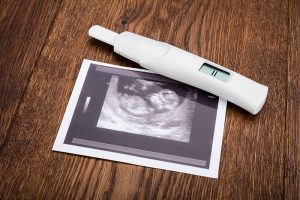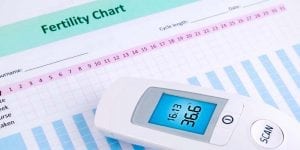When a couple is trying to conceive, they often expect to see a positive test immediately. If it is not happening, just relax. It can take time.
For women under the age of 35, it is recommended to try to conceive for 12 months before seeing a doctor. After the age of 35, contact a fertility specialist if you have not conceived within six months.
Pregnancy Does Not Happen the Same for Everyone
When it comes to pregnancy, every couple is different. There are couples who conceive the first month that they try, while others try for months without success. The latter may wonder if there is something wrong. If it has been a few months and you have not been successful, it does not necessarily indicate a problem.
The best thing to remember is that getting pregnant is not an exact science. Don’t compare yourself to others. Some people conceive easily, while others have to try much harder. Fortunately, there are things you can try in order to make your dreams of having a baby come true.
What Can We Do to Help with Conception?

Lastly, instead of having sex every day, try doing it every other day. While this may seem counterproductive, it actually increases your chances. Having sex every day will feel like a chore and will put pressure on both partners. In addition, this reduces sperm count.
To ensure optimal fertility, you should also focus on a balanced diet, which consists of plenty of fruits and vegetables and avoid negatives substances such as cigarettes and alcohol, as these stimulants can have a negative effect on fertility. Overweight and underweight are also counterproductive when it comes to conception. Therefore, maintain a healthy BMI and do moderate exercise.
If you have tried everything possible without success, seeing your physican is the next step.
A Fertility Specialist Can Help
Several negative tests don’t mean that the couple will never become parents, but maybe just that the couple needs special help. First of all it is best to make an appointment with your ob–gyn to get a thorough check-up. The physician can test you for possible sexually transmitted diseases, check your hormone levels (including the thyroid gland) and make an ultrasound. He may also refer you to a fertility specialist. A fertility specialist can be of assistance to couples who are having difficulty. Depending on the cause of conception problems, further measures may be considered. For example, certain medications can boost fertility or special procedures such as IVF or ICSI can help to achieve conception.
Although we may think that getting pregnant is something that will be easy, this is not always the case. Keep in mind that the chance of getting pregnant is only about 15-25 percent in each menstrual cycle. When you and your partner decide that you are ready to become parents, never give up hope. The time it takes to conceive varies among women. As always, when in doubt, consult your doctor for advice. In order to get pregnant, different factors have to interact. Even if there is no guarantee that it will work, there are a number of measures available to help you get a step closer to your dream of offspring.





